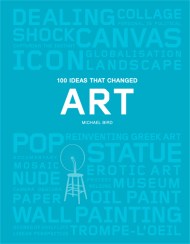100 Ideas that Changed Architecture chronicles the most influential ideas that have shaped architecture. Entertainingly written by an expert on architecture, it provides a concise history of the subject, and offers a fascinating resource to dip into for the general reader.
Starting with the basic building ‘components’ of door, window, column and beam and the Classical orders, this inspiring book goes on to explore historical architectural movements such as the Picturesque and Beaux-Arts, innovative materials such as steel and reinforced concrete, technical innovations, such as the lift and electric lighting, through to modern movements such as Universal Design and Deconstruction.
Arranged in a broadly chronological order, these architectural ideas are presented through informative text and arresting visuals, exploring when each idea first evolved and the subsequent impact it has had up to the present day.
Starting with the basic building ‘components’ of door, window, column and beam and the Classical orders, this inspiring book goes on to explore historical architectural movements such as the Picturesque and Beaux-Arts, innovative materials such as steel and reinforced concrete, technical innovations, such as the lift and electric lighting, through to modern movements such as Universal Design and Deconstruction.
Arranged in a broadly chronological order, these architectural ideas are presented through informative text and arresting visuals, exploring when each idea first evolved and the subsequent impact it has had up to the present day.
Newsletter Signup
By clicking ‘Sign Up,’ I acknowledge that I have read and agree to Hachette Book Group’s Privacy Policy and Terms of Use
Reviews
I think this is an extremely interesting way to consider the development of building design and architecture. I would strongly recommend it as essential reading to any student studying the built environment course. GAVIN TUNSTALL - NOTTINGHAM TRENT UNIVERSITY
Accessible information on key themes, each presented across double page spread. Chronological order helps students to comprehend the progression of developing technology/chemical advances in photography that impact the visual aspects. Great as a reference book, a great starting point to then explore these areas in further detail.






















